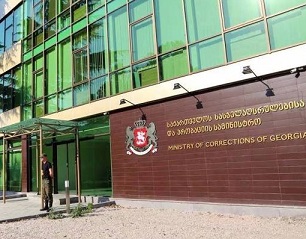Natia Gogolashvili
Convicted Z.J has been serving imprisonment term for particularly grave crime for 7 years already. He was sentenced to 9-year-imprisonment. In December, 2017 he petitioned to the First Local Council of the Ministry of Corrections in Eastern Georgia for early release. The Council, regardless positive description, refused Z.J to early release from prison.
The resolution of the Local Council of the Ministry of Corrections in Eastern Georgia reads:
“As the gravity and character of the committed crimes significantly impact the purposes of the early-release, as well as the circumstances in which the crime was committed, behavior of the convicted person during the imprisonment period and his attitude towards the committed crime, the Council concluded that other positive context cannot annul and outbalance negative opinions of these criteria,” the resolution reads.
Despite the refusal, the Council positively describes Z.J in its resolution.
“The convicted person received high education. He has a family and has positive relationship with family members. He has working experience and is not emotionally aggressive. He has organizational skills, has tendency of self-development, works on his personality and development-realization of his resources. The convicted person is motivated to have some changes. Once released, he plans to get a job. During imprisonment term, he participates in all social activities, educational and rehabilitation programs, cultural and sport events. He participated in intellectual games. He successfully took psycho-social programs in the penitentiary establishment # 12. The convicted person often visits the prison library and loves reading. He goes to the St. George Church in the penitentiary establishment # 12 and attends religious services there; he is chief psalm-reader. He is polite with the prison administration and other inmates; he does not have conflicts and is not aggressive person,” the resolution of the Local Council of the Ministry in Eastern Georgia reads.
HRC lawyer Eka Kobesashvili said unreasoned refusal and well-established practice of the Commission is observed in many cases. She said similar approach contradicts the law.
In accordance to the Article 72 of the Criminal Code of Georgia, a convicted may be early- released from prison only when he/she has actually served: at least half of the term of the sentence for a less serious crime; at least two thirds of the term of the sentence for a serious crime; and at least three fourths of the term of the sentence for a particularly serious crime.
Eka Kobesashvili said, in accordance to the law, when making the decision, the Council shall consider the case in complex and shall not refuse the applicant only for being convicted of particularly grave crime.
“The Council shall provide reasoning of its refusal in the resolution. If the law estimates some preferences for the convicts and encourages their early-release, the Council shall not restrict the legally estimated preferences with its unreasoned refusal. One of the purposes of the early conditional release is that the convicted person acted well, obeyed the prison administration and curricula of the establishment; he/she shall not have conflicts with the prison personnel and other inmates. If the convicts will know that their positive behavior and other positive aspects will not be enough to receive early conditional release, because they were convicted for grave or particularly grave crimes, they will lose motivation to be positively evaluated during the imprisonment term,” Eka Kobesashvili said.
Human rights defender said this practice contradicts the Article 39 of the CCG, which stipulates that the goal of a sentence is to restore justice, prevent repetition of a crime and re-socialize the offender.
News
December 13, 2023
Ethnic minorities outside the peace dialogue
November 6, 2023
‘Peace’ agenda of political parties
Popular
Articles
February 13, 2024




